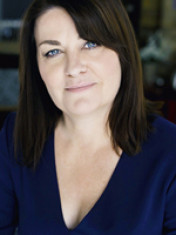
Conférence d'Irena F. Creed le 30 janvier à 11h

Mme Irena F. Creed, directrice exécutive à l'Université de Saskatchewan (voir bio ci-dessous) présentera une conférence le 30 janvier 2019 à 11h00, à la salle 2301 du Centre Eau Terre Environnement de l'INRS.
Sa conférence s'intitule Moving beyond the catchment boundaries (voir résumé ci-dessous).
Bienvenue à tous !
Abstract: Northern catchments are “sentinels” of environmental change. Their small streams and wetlands are particularly susceptible to global changes including climate warming, hydrologic intensification, and atmospheric pollution – all processes that affect catchment function. Catchment responses are significant and are being propagated far beyond catchment boundaries, altering the physical, chemical and biological conditions of downflow rivers and lakes. Associated with these changes in catchments are the scattered outbreaks of unconventional cyanobacterial blooms in lakes. These blooms require an explanation using a new conceptual model of algal bloom formation, where higher temperatures combined with hydrological intensification of landscapes rich in organic matter deposits are leading to brownification of lakes. The increase in and shift towards more refractory carbon alters light conditions and nutrient composition; changes that appear to increase phytoplankton productivity, by favoring phytoplankton species that are not tightly matched to the extant grazer – phytoplankton such as the potentially harmful cyanobacteria that can adapt to the new conditions. A threatening consequence is the collapse of the present fisheries by the re-direction of energy out of the pelagic food chain. This proposed model will be considered in detail using biomass, community changes and proxies for the energy transfer.
Biography: Irena Creed is Executive Director of the School of Environment & Sustainability at the University of Saskatchewan, and was the Canada Research Chair (Tier 2) in Watershed Sciences until June 2017. Irena's research group, together with collaborators from government, industry and an international network of scientists, study the impacts of global change (climate change, atmospheric pollution, and land use/land cover change) on ecosystem structure, function and services. She works at multiple scales using contemporary techniques to investigate how hydrology influences ecological and physiological processes in terrestrial (forest, agriculture) and aquatic ecosystems (streams, wetlands, lakes, rivers).
